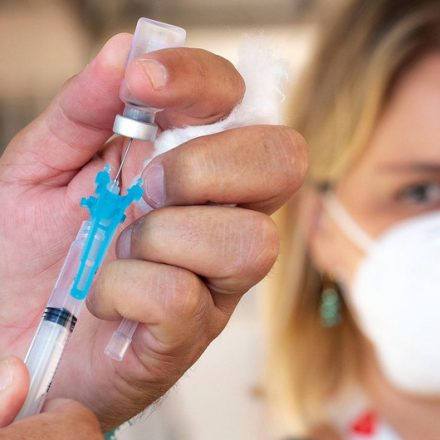In a comprehensive effort to bolster the nation’s defenses against future pandemics, the Union Government has unveiled a series of initiatives aimed at enhancing the capabilities of States and Union Territories (UTs). The Ministry of Health and Family Welfare is at the forefront of this endeavor, providing financial assistance and fortifying infrastructure to ensure a swift and effective response to public health emergencies.
Financial Assistance and Health Infrastructure Enhancement
A central component of this strategy is the financial support extended to States and UTs. Under the Pradhan Mantri- Ayushman Bharat Health Infrastructure Mission (PM-ABHIM), the government has allocated Rs. 3,619.82 crore for the fiscal years 2021-2024. This funding is intended to improve public health preparedness by enhancing the capacity of primary, secondary, and tertiary healthcare facilities.
Strengthening Disease Surveillance and Data Reporting
The Integrated Disease Surveillance Programme (IDSP) has been significantly bolstered through the Integrated Health Information Platform (IHIP). This platform facilitates rapid data reporting and the deployment of trained multidisciplinary Rapid Response Teams (RRTs) to manage public health control and containment measures. The use of advanced data modeling and analytical tools within the IDSP enables real-time data access and decision-making at all levels.
Laboratory and Diagnostic Network Expansion
To ensure timely and accurate diagnosis of pathogens, the Indian Council of Medical Research (ICMR) has established a network of over 150 Virus Research and Diagnostic Laboratories (VRDLs). Additionally, four regional National Institutes of Virology (NIVs) are being set up in Jammu, Jabalpur, Dibrugarh, and Bengaluru to complement the apex laboratory at NIV Pune. Mobile BSL-3 laboratories have also been developed to provide on-site diagnostic services during outbreaks, particularly in remote areas.
National Institute for One Health
In a bid to foster integrated research across human, animal, plant, and environmental health sectors, a National Institute for One Health (NIOH) is being established in Nagpur by ICMR. This institute aims to address the complex interdependencies of various health domains, enhancing the country’s overall pandemic preparedness.
Capacity-Building Initiatives
Under the Central Sector Scheme, ‘Health Sector Disaster Preparedness and Response,’ various capacity-building programs are being implemented nationwide. These initiatives focus on hospital preparedness, disaster response, and providing psychosocial care in disaster settings, ensuring a holistic approach to managing health emergencies.
Comprehensive Support for COVID-19 Response
During the fiscal year 2020-21, the government released Rs. 8473.73 crore to States and UTs under the India COVID-19 Emergency Response and Health System Preparedness Package (ECRP-I). This funding was utilized for strengthening health infrastructure, expanding the laboratory network, enhancing surveillance, and procuring medical logistics. In the subsequent phase, ECRP-II, an additional Rs. 12,740.22 crore was provided to further ramp up health infrastructure and ensure the provision of essential medical supplies.
Ministerial Statement
Union Minister of State for Health and Family Welfare, Smt. Anupriya Patel, outlined these comprehensive measures in a written reply in the Lok Sabha. She emphasized the government’s commitment to building a resilient health system capable of effectively managing any future public health emergencies.
Through these concerted efforts, the government aims to establish a robust framework for pandemic preparedness, ensuring the nation is well-equipped to tackle emerging health threats with agility and precision.










